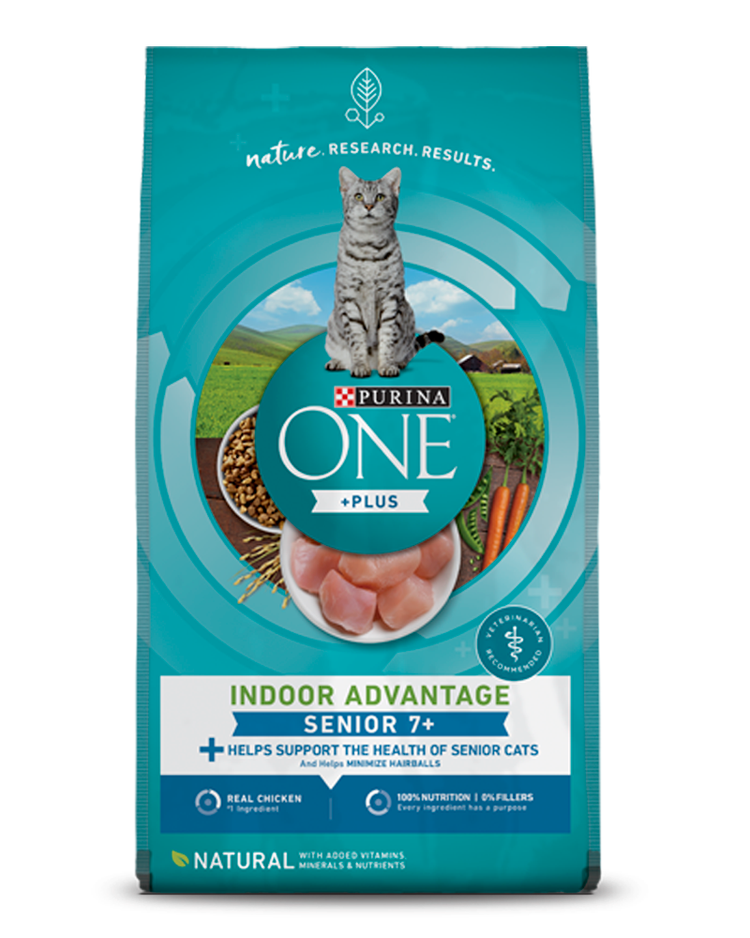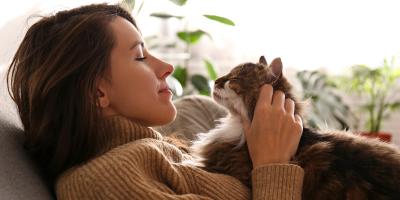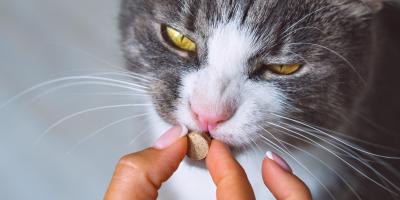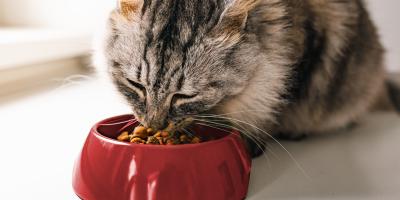Cat Dementia: What You Need to Know


As more cats are living longer, age-related problems such as cat dementia become more common.
Caring for a senior cat can be a great experience for pet owners, but old age can come with some health problems. Here are the common signs of feline dementia and recommendations for keeping your older cat comfortable.
Do Cats Get Dementia?
Yes, cats can get dementia. Similar to the human version of the disease, feline dementia is a cognitive dysfunction illness and can manifest in any senior cat.
There are many changes at play as a cat’s brain ages. So, make sure to ask your veterinarian how dementia might affect your pet.
What is Cat Dementia?
Cat dementia, officially known as feline cognitive dysfunction, refers to a gradual decline in cognitive abilities caused by aging-related changes in the brain.
Typically, the onset of cat dementia is slow, with changes in memory or spatial abilities worsening over time.
Can Cats Get Alzheimer's?
Cats suffer from dementia rather than Alzheimer’s disease. However, dementia in cats looks similar to that of human Alzheimer’s, as there is a similar effect of the brain.
How Long Do Cats Live With Dementia?
Cats with dementia can live long lives but each case is different. You can provide comfort by making adjustments to cope with their condition.
What Age Do Cats Get Dementia?
The feline brain starts to decline at around 10-15 years of age, so cat dementia is more likely to occur later in life.
6 Cat Dementia Signs to Watch For
The early signs of cat dementia can be mistaken for other illnesses. Old age is also associated with diseases such as arthritis, hyperthyroidism and kidney disease. Make sure you discuss any behavioral changes in your cat with your veterinarian.
1. Disorientation
Difficulty navigating familiar places and forgetting where everyday items are located—such as a food bowl—is common. Your pet may also appear to be wandering aimlessly.
2. Different Sleep Patterns
Cats are creatures of habit. If they sleep when they are usually awake and vice versa, this behavioral change could be cause for concern.
3. Change in Appetite
A reduced interest in food is another possible indicator of feline dementia but can be common in other age-related diseases. Alternatively, you may notice that your cat seems to have an increase in appetite, or keeps returning to their bowl even outside of mealtimes.
4. Potty Problems
Indoor accidents and forgetting the location of the litter box are possible signs of cat dementia. Make sure you consult your veterinarian to rule out other possible health issues, such as kidney problems.
5. Increased Meowing
Loud meowing or increased howling in elderly cats can sometimes point to cognitive issues. Although excessive vocalization can have many different causes, including seeking attention or signaling a desire to go outside, meowing in cats is also associated with feline dementia.
6. Less Interest in Playing
Your cat might forget commands and/or stop responding to them. The same goes for playing cat games. They may forget what to do or that they even want to play.
Can Cat Dementia Be Treated?
The brain changes associated with cognitive dysfunction in cats are not reversible, so there is no curative treatment. However, there are plenty of ways to help manage some of the symptoms associated with it.
In some cases, it is also possible to slow the progression of the illness. As always, your veterinarian will be able to recommend options, including behavioral therapies and appropriate medication.
9 Things to Do to Help With Cat Dementia
1. Avoid Changes to Their Environment
Minimize changes to their environment to avoid further confusion or cat anxiety. This includes keeping their food bowls, litter boxes and furniture in the same location.
2. Use Nightlights for Regulated Sleep Cycles
Nightlights will help your cat manage the changes in their sleep-awake cycle. If they start roaming at night, having a dim light is useful in localizing their position in the home, around the litter box or the food bowl.
3. Use Ramps & Stairs to Help With Disorientation
If your cat has other health problems, such as osteoarthritis, installing ramps or stairs can help them reach their favorite high places. These can also be easily improvised using boxes or books, as long as they are stable and won’t fall over.
4. Ensure They Keep an Active Mind
Keep their mind active with enrichment games, puzzles and cat toys. This should be done throughout their lives but it's also great mental exercise for cats suffering from dementia.
5. Understand That Accidents Happen
Try not to get frustrated if they seem confused about their litter box or have indoor accidents. You can attempt basic re-training methods but be patient when it comes to results.
6. Consider Dietary Supplements for Brain Health
Ask your veterinarian about supplementing with omega-3, vitamin B12 and antioxidants such as vitamin E to their diet as these can support a healthy brain.
7. Make Litter Boxes Easy to Access
Determine if litter boxes can be made easier to access by making them bigger or shallower.
8. Stick to a Daily Routine
Create a regular daily routine and be consistent with it. For example, keep a regular cat feeding schedule to help avoid confusion.
9. Add More Resting Spots for Them
Create additional resting places in warm spots for your cat’s comfort.
Can Cat Dementia Be Prevented?
The brain is known for its neuroplasticity, which means it can continue to change throughout life and be easily shaped by experiences. This is why mental enrichment can form an important part of delaying onset and slowing progression of cat dementia.
Introduce enrichment activities that are mentally and physically stimulating. They should be suitable for your cat’s personality and account for health problems such as osteoarthritis.
Playing can be an important part of this, especially if your cat lives mostly indoors and has access to toys that cater for your pet’s natural chasing instincts.
Other cats may prefer food-motivated games such as puzzle feeders, but make sure to replace food regularly.
For more health tips for your senior cat, check out our other senior cat health articles for advice from our experts.

Be Rewarded for Your Purina Purchases
Earn and redeem points for Purina products with myPurina app.




